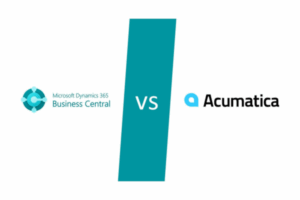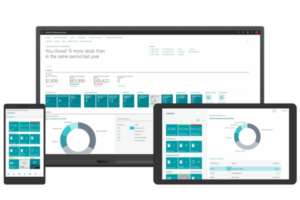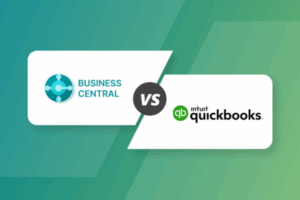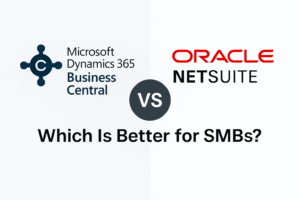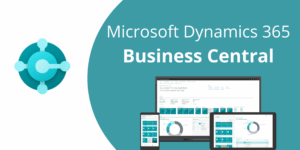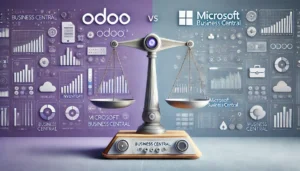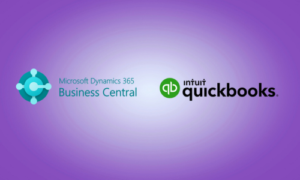5 Core Components of ERP Systems
In September, news channels reported that Pakistani airports were going paperless by adopting ERP. It’s a stark reminder to small businesses that ERP adoption has become a global phenomenon. The term ERP stands for enterprise resource planning. It means integrating different business procedures into a single, centralized platform. Let’s discuss the core components of an ERP system:
-
Financial Management
ERPs serve as guides into business finances. With an ERP, you get a real-time view of your startup’s vital financial information. Here’s what it manages:
- Financial transactions
- Accounts payables
- Accounts receivables
- General ledgers
- Financial reporting
-
Supply Chain and Inventory
An ERP system’s supply chain & inventory component improves the logistics of your company. It has lots of helpful modules like:
- Procurement
- Inventory management
- Order management
- Logistics and item deliveries
-
Human Resources Management
Looking for a robust ER feature? ERP lets you manage worker information via:
- Payroll
- Benefits
- Training the workforce
- Performance management
-
Customer Relationship Management
If you want to manage customer information, then use this component of ERP. It offers features like:
- Sales tracking
- Marketing campaigns
- Customer service management
- Customer relationship management
- Comprehensive overview of customer interactions
-
Project Management
You can plan, manage, execute, and track the progress of your projects with this component. It includes these modules:
- Resource allocation
- Time tracking
- Project reporting
3 Benefits of Integrating ERP Systems
A study published in August 2023 predicts that the global ERP market is poised to cross 90 billion USD by 2030. The following benefits of ERP implementation explain why:
-
Operational Efficiency
ERPs make your business operationally more efficient. They do that by:
- Automating repetitive tasks
- Reducing manual data entry
- Streamlining business processes
- Better inventory management
- Enhanced customer relationship-building
-
Improved Decision-Making
Your business gets access to real-time data, insights, analytics, and other key information with an ERO.
By providing a centralized view of business operations, an ERP system can help identify trends, patterns, and opportunities that might otherwise go unnoticed. This can help businesses make more informed decisions about resource allocation, product development, and strategic planning.
-
Enhanced Collaboration and Communication
ERP systems also improve employee collaboration and communication across departments. When your workers have access to a shared platform where sensitive data is easily available, it easily breaks down all communication silos. The results are:
- Better communication
- Faster decision-making
- Improved business performance
ERP Implementation and Customization
A research paper reads that over 20 brands of ERP systems are used by Saudi SMEs. Most companies are using SAP and Oracle (used by 1 in 2 startups), while Delta and MS Dynamics claimed the next 2 positions, respectively. However, you shouldn’t choose an ERP solely because it’s quite popular or trending. An ERP should be chosen based on:
- What kind of features does it offer?
- How much will it cost you in the long run?
- Can you customize it for your particular niche?
- How easy-to-use is it for non-tech-savvy employees?
Let’s discuss some key strategies and successful ERP implementation and customization:
Strategies for Successful Implementation
ERP software involves different steps that include:
- Planning
- Analysis
- Designing
- Development
- Testing
- Deployment
However, a McKinsey survey says that 7 out of 10 ERP implementation plans fail. That’s why you need to look into the strategies to successfully implement an ERP solution:
- Establish clear goals and objectives: These objectives must align with your business processes & functions. This way, you can make sure that your ERP system is configured to meet your specific, niche-relevant needs.
- Involve key stakeholders throughout the process: These stakeholders aren’t just the owners or founders of the company but also (and mainly) the IT staff as well as your end users. Managers and executives must be part of the conversation, too.
Customization vs. Standardization
You may use the ERP software in its standard form. However, some startups customize it to meet their specific needs. Customization is often costly and time-consuming. But it can make sure that the new ERP system is tailored to your business procedures.
On the other hand, using the software in its standard form can be faster and less expensive but may not meet all of your specific needs. The choice is yours to make!
Training and Change Management
Lastly, you shouldn’t forget about employee training when it comes to change management. Employees are likely to resist this change and won’t adopt the new ERP so easily, so training them will help them learn to embrace the new enterprise resource planning software easily.
Prepare them for the changes that come with the new system. You’ll give them technical training so the workforce knows how to use it. Familiarity with the new ERP will ease implementation.
Technological Advancements in ERP
A survey by GoodFirms has revealed that 6 in 10 businesses around the world have implemented an ERP system already. However, these numbers are expected to grow with technological advancements in the ERP market. As technology continues to advance, so does the functionality of ERP systems. So, here are a few examples of how ERPs are changing and growing in functionality over time:
Cloud-Based ERP Solutions
You may realize that ERPs come in two fundamental forms, i.e., on-premises and cloud-based. There is a 3rd form as well, hybrid, combining the features of both types. However, cloud-based ERP has become a small company’s first choice because of these reasons:
- It lets businesses streamline operations
- It enhances business security against cyber threats
- it gives businesses keen insights for better decision-making
- It keeps business data accessible anytime, anywhere, and hassle-free
- it breaks down communication silos and makes collaboration easier
Artificial Intelligence and Machine Learning
Thanks to artificial intelligence (AI) and machine learning (ML), business operations have improved. So, a business can leverage AI and ML-powered ERP systems to:
- Automate routine tasks
- analyze complex datasets
- provide relevant insights
- Help businesses make better decisions
Let’s say a startup can use AI to analyze customer data and provide personalized recommendations. On the other hand, ML can identify patterns in data and help businesses optimize their operations. AI plays a key role in data forecasting and predicting future marketing trends as well.
Internet of Things (IoT) Integration
IoT integration is another amazing tech advancement that changes how startups rely on ERP. The idea is to integrate IoT devices (machines/sensors) with ERP systems to:
- Collect data in real-time
- Optimize operations via data usage
For instance, an ERP system integrated with inventory management devices and barcode readers simply uses real-time data to adjust product schedules. ERP systems can also leverage this IoT integration easily to order replacement parts when a machine breaks down.
Related Posts
Challenges and Considerations
“…many companies will be forced to shake up their existing ERP systems, and move toward newer, more agile platforms equipped with artificial intelligence and advanced analytics” – Financial Times.
Implementing an ERP system is a complex process requiring careful planning & execution. In this section, we will explore some challenges and considerations that you should keep in mind when implementing an ERP system. This way, you can reap the benefits of ERP systems to the fullest.
Security and Compliance
Cybersecurity has become a major concern for companies nowadays. ERP systems contain sensitive data and financial info. These software solutions also have customer data and IPs. So, you have to make sure that this system is secure and doesn’t lead to data breaches.
Cost and Investment
The cost of ERP implementation is another major challenge for small businesses. ERPs can be expensive, so you should be prepared to invest a significant amount of time and resources into the implementation process. Do a cost-benefit analysis and look for potential benefits of ERP implementation.
Vendor Selection and Partnerships
Don’t forget about partnering with the right vendor. This part is very important for the success of your ERP implementation plans. You have to find a vendor who has experience working with other startups in your niche. Also, consider the level of support that they provide. A good vendor must be able to provide you with ongoing support and maintenance, as well as training for your employees.
Why Alchemy 365 is the Best Option for ERP Solutions?
When it comes to ERP solutions, Alchemy 365 is the best option to modernize the way you do business. Our cloud-based ERP system lets you organize your data, gain insights, & make informed decisions. With Alchemy 365, you can improve business processes and increase efficiency, all while ensuring the security and compliance of your data.
Also, our system is easy to use and can be customized to meet the unique needs of your business.






